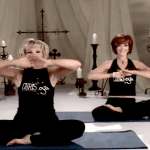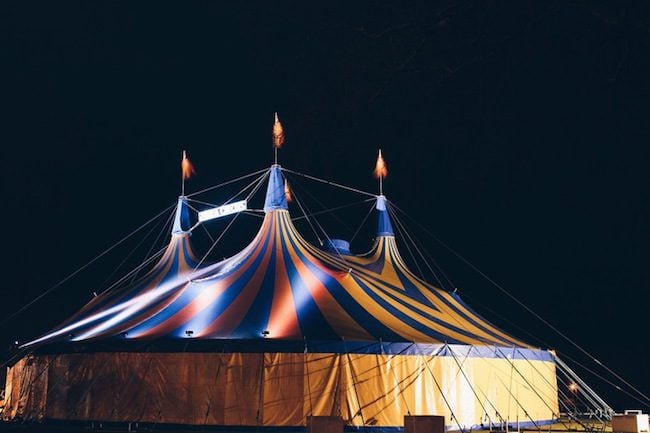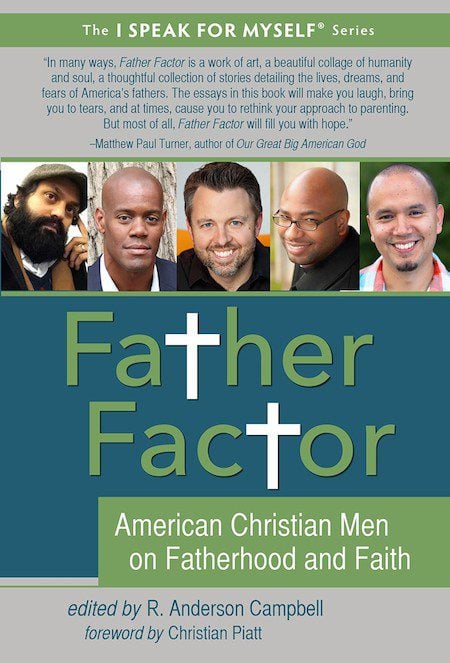We’ve all heard the sermon, right? You know, the badly regurgitated version of substitutionary atonement with more than a little bit of an obsession with the eternal hellfire bit of the formula. If you don’t know what I’m talking about come visit me in New Orleans. I’ll take you down to Bourbon Street one night and we’ll invariably find a guy who is quite literally standing on a soapbox and shouting through his microphone to anybody that will listen about the sort of future they will have if they die that night without having “repented” or “confessed” Christ as Lord. If you do know what I’m talking about and have heard this message preached in more sanitary and religious places than Bourbon Street have you ever thought to yourself, “There’s got to be more to Christianity than this?”
I think what excites me about the “creative Christianity” that we at the Antioch Session are trying to advance is the grace filled, celebratory, unapologetic response that says “Yes, there is!” It’s a goal to present a bigger Christianity than what a bifurcation between Right and Left allows room for. It’s busting through the old boundaries of a culture war that we didn’t start and discovering what could be on the other side. That’s the hope, anyways.
I’d like to start off my contribution to this conversation with a three part series on a subject that I believe to be crucial (in the literal sense of the word) to this whole enterprise: Participation. By way of introducing where I want to go with this subject I offer this reflection on Holy Week. Part two I want to wade into deeper waters and write about our union with Christ and our participation in the Church. Part three, I intend to look at participation as a form of engagement with the cultures (physical and virtual) we find ourselves in.
I’m not sure “creative Christianity” can be possible if we remain at a cooly distant, and almost high ground, of cultural critique or suspicion. In my personal experience that is a posture wrought from pain, frustration and even a little bit self-righteousness. It’s a position borne out of genuinely wanting to be a part of change we see needs to happen in our homes, communities and churches but at the same time exhausted from banging our heads against the same wall. Ultimately, speaking from the outside-in is a form of surrendering the center and we spend out creative margins on being suspicious or “post” something. Inversely, creative Christianity necessitates participation and I want to use the rest of the space I have here to share what that might look like.
A week or so ago I was in a meeting at my parish where our priest was facilitating an hour long discussion on the Triduum in preparation for Holy Week. “Triduum” quite literally means a three day period and the triduum of Holy Week is in reference to the Maundy Thursday, Good Friday and Easter Vigil (or Holy Saturday) masses that we do. We spent most of our time talking about Maundy Thursday. Not so much about the elements of the service (although that is important) but about our particular point of view as we attend this three day drama of promises, betrayal, death and hopeful anticipation of new life.
Because this liturgy is so dramatic it is really quite easy to view it as a play we are attending – especially when the drama is repeated year after year. It’s easy to see it as a play where key people (typically the male leadership) within the parish re-enact for everybody else the events that transpired within our shared narrative we call the Gospel. This is where our priest began to press in a bit and he challenged the notion of imitating these events. Imitation doesn’t go far enough. What is necessary and what we are called to is participation. I think we see this in the “Rich Young Ruler” (cf. Mark 10). Jesus’ call to join him in solidarity and participate in his ministry was too much for the young man. Similarly, our liturgies are not merely some play like Hamlet that we re-enact to the best of our ability year after year. No, our task is to participate in the drama which began in the gospel narratives and continues to unfold. Rather than picking up a costume or assuming a character, what would it look like to participate in the drama as ourselves?
I think we can learn a lot from Pope Francis’ Maundy Thursday practices. Francis has wowed the world over and over again in the year or so since he was elected to that office. His first Holy Week as Pope certainly got a lot of attention because rather than washing the feet of key priests for his first Maundy Thursday he went to an adolescent detention facility to wash the feet of convicted criminals; one of which was a young Serbian Muslim woman. This year he did much the same only at a home for the elderly and disabled. While those outside the Catholic tradition are in awe of Francis’ commitment to “break with tradition” he actually hasn’t. What we are seeing is Francis’ resolve to participate in Christ’s grace and reconciliation (a much deeper tradition) after a long, long time of the Church being content with mere imitation.
But he’s the Pope – isn’t stuff like that in his job description? Who else could get away with gestures as big as those? Participation, I think, begins with the little things. It looks like taking ten minutes out of my day to sit still, be quiet and listen. It looks like suspending my suspicion and taking in what the other is trying to say before looking for the layers of meaning. It looks like picking up the phone and calling a friend I’ve been meaning to keep in touch with or reaching out to someone I have unresolved issues with. It begins in looking the person that is standing at the end of the off ramp in the eye as I give them a dollar. These steps, I have found, are seeds that are both planted and scattered to the wind. Some will certainly take hold and transform our souls.
When we jump in head first and participate in the good work God intends to see to its completion nothing will ever be the same.












